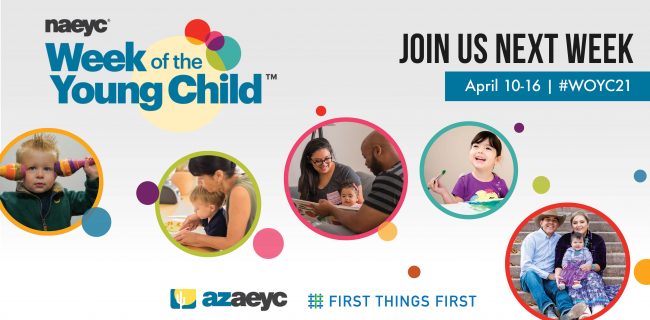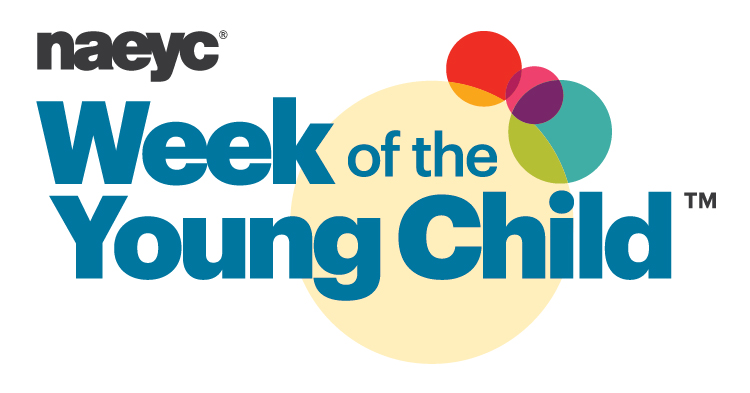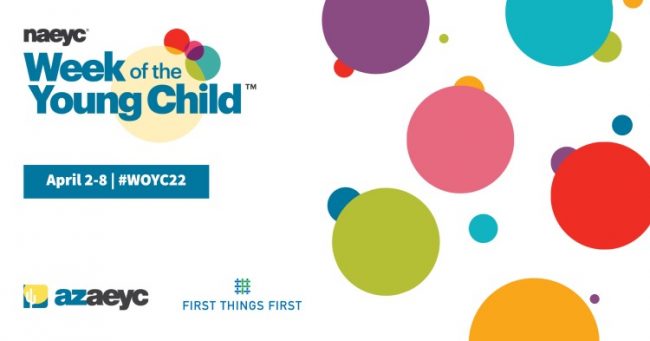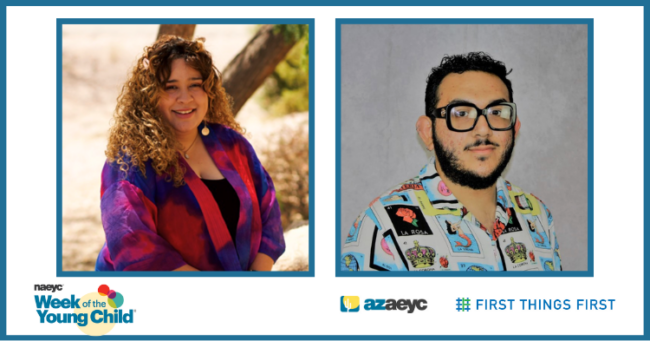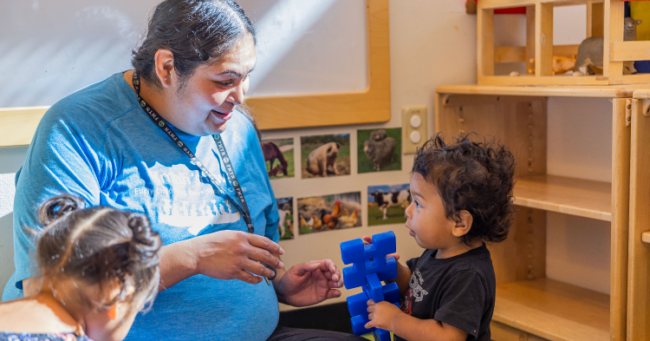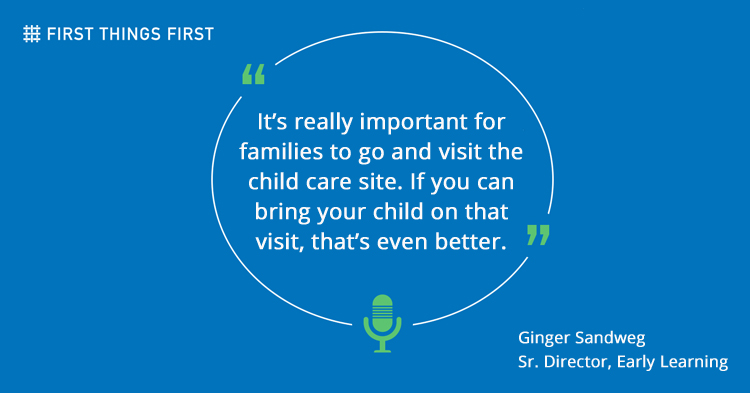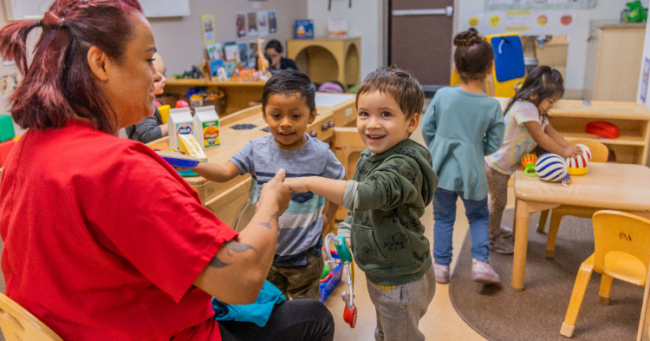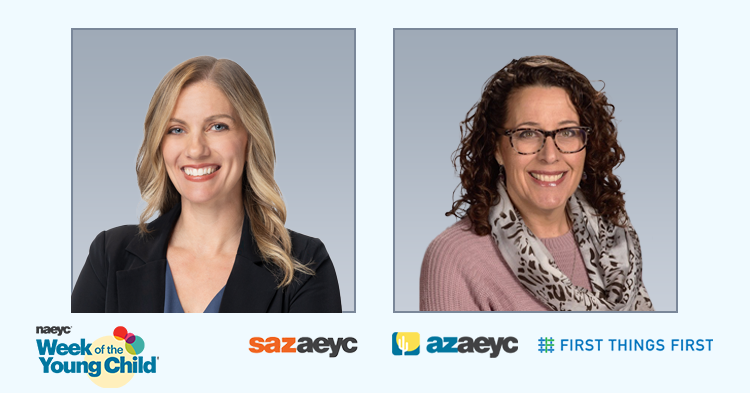
First Things First, Arizona Association for the Education of Young Children (AEYC), Southern Arizona AEYC and other community partners are celebrating the National Association for the Education of Young Children’s Week of the Young Child, which begins on April 6.
The week, which runs through April 12 is an annual nationwide celebration that focuses attention on early learning and the educators who support the positive development of young children.
This year, FTF spoke with Diane Salazar, AzAEYC vice president of membership and Jessica Howe, SAZAEYC vice president of membership They are helping lead the organization’s efforts to advance equity, belonging and justice in early care and education, in collaboration with board members and staff.
Salazar and Howe share their experience and advice for how people can get involved this year.
QUESTION: Tell us what Week of the Young Child means to your organizations.
ANSWERS:
Diane Salazar: Week of the Young Child (WOYC) is an annual celebration sponsored by the National Association for the Education of Young Children (NAEYC). AzAEYC and SAZAEYC are the two State Affiliates of NAEYC. WOYC is an opportunity to celebrate joyful early learning and raise awareness of the principles of developmentally appropriate learning experiences. During WOYC, we highlight the importance of quality and affordable child care, fairly compensated educators, and most of all, the possibilities and wonders of early care and education. You can learn more and get involved this year at www.azaeyc.org/woyc.
Jessica Howe: WOYC serves as a platform to raise awareness about the essential role early childhood programs play in supporting the healthy development and well-being of our youngest community members. WOYC means showcasing the dedication and hard work of the early care and education workforce, while also emphasizing the importance of advocating for policies and practices that benefit young children and their families.
QUESTION: There’s been a lot of talk recently about creating more access to affordable, quality child care for Arizona’s working families. How are you working towards that goal?
ANSWERS:
Diane: AzAEYC is the leading early childhood advocacy organization in Arizona. We elevate the stories of early care and education professionals and provide training and professional development that helps strengthen the skills of early childhood educators to be advocates for children, families and the child care field. We also build bridges of collaboration across a variety of sectors to improve the availability of child care options that are affirming and responsive to the needs and wants of Arizona’s families. We continue to meet with lawmakers to secure federal funding and state investments which can build on existing quality child care options and expand quality early care and education services to ensure all families who want it have access
Jessica: To increase access to affordable, quality child care for working families in Arizona, SAZAEYC provides training and professional development for child care providers to enhance their skills and qualifications. This, in turn, benefits working families by ensuring their children receive the best possible early care and education environments. By working collaboratively with the community and local businesses, we can also make strides toward achieving the goal of accessible, affordable and high-quality child care.
QUESTION: Week of the Young Child celebrates Arizona’s youngest children and the educators who play such a major part in building children’s lifelong learning skills. Why is a qualified, fairly compensated early care and education workforce important?
ANSWERS:
Jessica: Early childhood educators provide a foundation for children’s academic, social, and emotional growth, setting them up for future success in school and beyond. When early childhood educators are valued and compensated fairly for their work, it both recognizes the importance of their role and also attracts and retains talented individuals in the field. This leads to a higher quality of education for young children, as well as a more stable and dedicated early care and education workforce.
Diane: A qualified, fairly compensated early care and education workforce is critical for providing quality child care in communities. Staff who are fairly compensated are more likely to be recruited and retained, which allows for professional development opportunities, and contributes to a positive school climate. Most importantly, without qualified staff, outcomes for children would be compromised. Turnover of early childhood educators impacts the relationships and learning experiences of young children—routines are disrupted and stress levels rise. Research shows that consistent, nurturing care is essential to healthy brain development.
QUESTION: How does having a quality early childhood system in Arizona benefit the entire state, not just the families with young children?
ANSWERS:
Diane: Many families can only participate in the workforce because they have access to quality child care and feel secure in who they have teaching their child. There is a significant impact on our economy when parents have to drop out of the workforce when quality early care and education is inaccessible and inequitable. This also impacts family economic well-being as budgets may be tightened to make ends meet due to lack of child care. All Arizonans benefit from a robust early care and education system.
Jessica: High-quality early care and education directly results in positive outcomes for children, including better academic performance, lower dropout rates, and increased earning potential later in life, which in turn boosts the state’s workforce and overall economic competitiveness. A strong early childhood system fosters a sense of community by promoting equitable opportunity and breaking the cycle of poverty. When all children have access to high-quality early learning experiences, regardless of their background or circumstances, it creates a more level playing field. Ultimately, investing in early care and education in Arizona is an investment in the state’s future prosperity, success, and overall quality of life for all its residents.
QUESTION: A strong Arizona economy needs a well-educated and skilled workforce. But Arizona can’t work unless child care works. What advice would you give to someone who wants to get involved and raise their voice?
ANSWERS:
Jessica: If you are passionate about supporting a strong Arizona, there are several ways you can get involved and raise your voice!
- First, educate yourself on the current state of child care in Arizona, including any challenges or gaps in the system to help you articulate your concerns more effectively when advocating for change.
- Second, consider joining or supporting organizations that focus on child care advocacy. Organizations like SAZAEYC and AzAEYC provide resources, networking opportunities, and guidance on how to make your voice heard at the local, state, and national levels.
- Third, reach out to your elected officials to advocate for better child care policies and funding. Sharing your personal experiences and stories can help policymakers understand the real impact of their decisions on families and communities.
Diane: Build relationships with your lawmakers, and let them know what you need. Elected officials want to hear from their constituents! On our state’s legislative website, you can review currently active bills and email your lawmakers to express your opinion on proposed legislation. Also, I encourage you to get involved by becoming a member of NAEYC! There is power in our collective numbers, and AzAEYC members are part of the larger movement to advocate for the ECE profession. NAEYC membership benefits include advocacy training, leadership support, child care business resources, and opportunities to get involved and make a difference for the ECE system in Arizona.
Jessica Howe has supported students, parents and teachers across Arizona as an educator for the last 17 years in public schools in Pima County. Howe taught full-time in pre-kindergarten through 8th grade classrooms, created and implemented STEM curriculum in the Flowing Wells Unified School District. She is director of My Future AZ, where she supports middle and high school students through college and career pathways.
Diane Salazar is principal at Faith North Early Childhood Center in the Phoenix Elementary School District. Salazar has served for 31 years in education and wholeheartedly professes her passion for early care and education. Salazar oversees the early childhood programming for the district and collaborates with elementary schools to develop a deeper understanding of developmentally appropriate practices in the K-2 grade levels.


